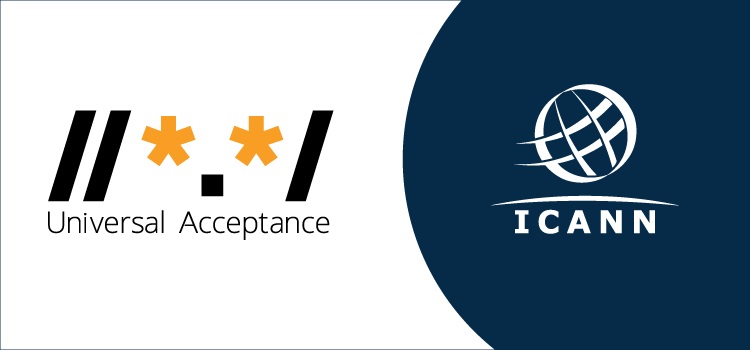This week on the Blacknight Podcast we talk to Don Hollander, Secretary General of the Universal Acceptance Steering Group at ICANN (Internet Corporation for Assigned Names and Numbers).
Click on the player below to play the podcast, or download it here: 21:12; 12MB; MP3.
Regular readers and listeners will know that ICANN is the international organisation which governs the Internet’s addressing systems, in particular, domain names. ‘Universal Acceptance’, Don explains, is “the idea that all email addresses and all domain names work in all applications”.
Before 2010, that was easy enough, he says, with just a few generic top level domains, “and then you had a bunch of two-character country codes”.
“And then in 2010 in changed quite markedly, because countries which don’t use the English character sets as their native scripts were having challenges serving their local communities”
That was the year in which several new international TLDs appeared, which used non-Latin character sets such as Arabic and Chinese.
“And then in 2013 the top level domains changed markedly again, because not only did you have these new non-English country-code top level domains, but suddenly you had another 1200 new top level domains, many in the English character sets, but about 10% also in internationalised domains”.
The result has been a challenge to the developers of software, and systems to make sure that valid domain names are accepted. This includes domains like .COM, .ORG and .IE, but also , .BLOG, .LGBT and .PHOTOGRAPHY.

There has been a broadly positive reaction to the requirement he says, which developers generally view as “a bug fix”, required for compliance with Internet Engineering Task Force (IETF) standards going back over 10 years.
And the Universal Acceptance Steering Group provides a lot of advice and assistance for developers to address the issue. The approach is built around the idea of ‘five verbs’ relating to the handling of domain names and email addresses: Accept, Validate, Store, Process and Display.
A recent study of the Top Thousand websites found that about 7% accepted all the test names; 7% rejected all the test cases; and the rest formed a traditional bell curve
“It’s not generally difficult to fix, but the challenge is making people aware that the environment has changed, that the standards which have been published by IETF … were changed 10 years ago, and people should be up to date with the standards, and provide service for the people who want to use them”, says Don.
For more information on Universal Acceptance, visit uasg.tech.
Subscribe for free to receive The Blacknight Podcast, via Apple Podcasts or RSS.
![finnishtypewriter Universal Acceptance is the Challenge for the International Internet [Audio]](https://blacknight.blog/wp-content/uploads/2017/12/finnishtypewriter.jpg)






Comments are closed.